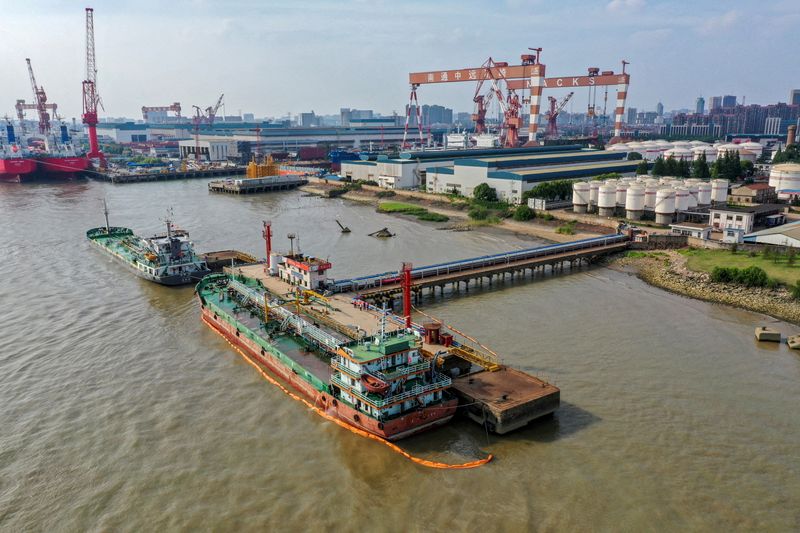China is quietly increasing purchases of oil from Russia at bargain prices, according to shipping data and oil traders who spoke to Reuters, filling the void left by Western buyers who walked away from business with Russia after of his invasion of Ukraine in February.
The move by the world’s biggest oil importer comes a month after it initially cut Russian supplies, out of fear of appearing to openly support Moscow and potentially exposing its state oil giants to sanctions.
Russian seaborne oil imports from China will soar to nearly a record 1.1 million barrels per day (bpd) in May, up from 750,000 bpd in the first quarter and 800,000 bpd in 2021, according to a Vortexa estimate. Analytics.
Unipec, the trading arm of Asia’s top refiner Sinopec (NYSE: SHI ) Corp, is leading the purchases, along with Zhenhua Oil, a unit of Chinese defense conglomerate Norinco, according to shipping data, a broker report. maritime seen by Reuters and five market operators. Livna Shipping Ltd, a Hong Kong-registered company, has also recently emerged as a major shipper of Russian oil in China, the traders said.
Sinopec declined to comment. Zhenhua and Livna did not respond to requests for comment.
The companies are filling the hole left by Western buyers after Russia’s invasion of Ukraine, which Russia calls a “special military operation.”
The United States, the United Kingdom and some other key oil buyers banned Russian oil imports shortly after the invasion. The European Union is finalizing a new round of sanctions, which includes a ban on buying Russian oil. Many European refiners have already stopped buying from Russia for fear of running afoul of sanctions or receiving negative publicity.
Vitol and Trafigura, two of the world’s largest commodity brokers, cut off purchases from Rosneft (MCX: ROSN ), Russia’s largest oil producer, before an EU rule came into force on May 15 that prohibits purchases unless they are “strictly necessary” to guarantee the EU’s energy needs.
“The situation started to take a drastic turn after the departure of Vitol and Trafigura, which created a vacuum, which could only be filled by companies that can add value and enjoy the trust of their Russian counterparts,” a trader told Reuters. Chinese who asked not to be named.
The low price of Russian oil – spot spreads are about $29 lower a barrel compared to before the invasion, according to traders – is a boon for Chinese refiners, who face shrinking margins in a slowing economy. The price is well below competing barrels from the Middle East, Africa, Europe and the United States.
China separately receives some 800,000 bpd of Russian oil through pipelines under state deals. This would lift May imports to almost 2 million bpd, 15% of China’s total demand. For Russia, oil sales are helping cushion the impact of sanctions on its economy.

